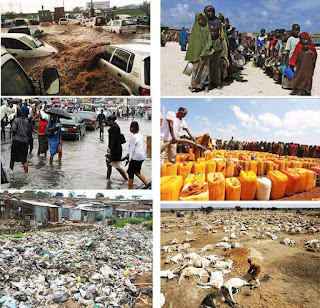As we inch closer to the 2030 deadline for the Sustainable Development Goals (SDGs), the world is asking: What comes next? The SDGs, adopted in 2015, have laid a robust foundation for addressing pressing global challenges, but the work is far from over, our planet and societies face challenges beyond the SDGs. Here’s a glimpse into what might shape the post-2030 agenda

Continuation and Expansion of Current Goals
- Sustaining Momentum: The SDGs are designed to be interconnected and indivisible, emphasizing the need for continued efforts in poverty eradication, health, education, and environmental sustainability. After 2030, it is likely that there will be a focus on sustaining the progress made towards these goals while addressing unfinished business from the current agenda.
- Addressing Inequalities: Despite significant advancements, inequalities persist both within and among countries. Future agendas may prioritize strategies to reduce these disparities, focusing on marginalized communities and ensuring equitable access to resources and opportunities.
- Climate Action: Climate change remains one of the most pressing global challenges. Following 2030, there will likely be an intensified focus on climate resilience and adaptation strategies, building on existing commitments to combat climate change and its impacts. Agendas may focus on achieving net-zero emissions by mid-century, and more concrete plans for carbon sequestration, renewable energy adoption, and nature-based solutions.
New Challenges and Areas of Focus
- Digital Transformation: The rapid advancement of technology poses both opportunities and challenges. A post-2030 agenda could include goals related to digital equity, ensuring that all populations have access to technology and the internet, which is increasingly vital for education, employment, and participation in society.
- Biodiversity and Ecosystem Restoration: As awareness of biodiversity loss grows, future initiatives may emphasize the restoration of ecosystems and sustainable management of natural resources. We could see a specific goal on reversing biodiversity loss with measurable targets for restoring ecosystems, halting deforestation, and protecting critical habitats, especially given the anticipated biodiversity loss that has occurred even with the current SDG agenda.
- Health Security: The COVID-19 pandemic highlighted vulnerabilities in global health systems. Future agendas may prioritize global health security, ensuring preparedness for pandemics and equitable access to healthcare services worldwide.
- Youth Empowerment and Intergenerational Equity: Young people are increasingly central to global development discussions. Future agendas might focus on including youth in decision-making, ensuring job opportunities, and integrating intergenerational equity as a cornerstone for sustainable development.
- Circular Economy and Sustainable Consumption: The concept of a circular economy has gained momentum, and it may be a key pillar of the post-2030 goals. This would promote minimizing waste, reusing materials, and shifting consumption patterns to reduce environmental impact across industries.
- Technology and Digital Governance: With advancements in AI, data privacy, and digital ethics, a post-2030 agenda might emphasize technology's role in sustainable development. This could include goals for digital literacy, ethical AI use, equitable access to technology, and safeguards against misinformation and cyber threats.
Global Governance and Partnerships
- Strengthening Global Cooperation: Achieving ambitious global goals requires robust partnerships across nations, sectors, and communities. Post-2030 discussions may focus on enhancing international cooperation mechanisms to address transnational issues such as migration, trade, and environmental challenges.
- Localizing Goals: There is a growing recognition of the importance of local actions in achieving global goals. Future agendas may emphasize empowering local governments and communities to tailor solutions that address their specific needs while contributing to broader objectives.
As we look beyond 2030, it’s clear that the new SDGs will demand innovation, global solidarity, and fresh thinking to meet challenges on a changing planet.
Want to stay updated on the latest climate related news? Subscribe to our website for all the latest insights.




No comments:
Post a Comment